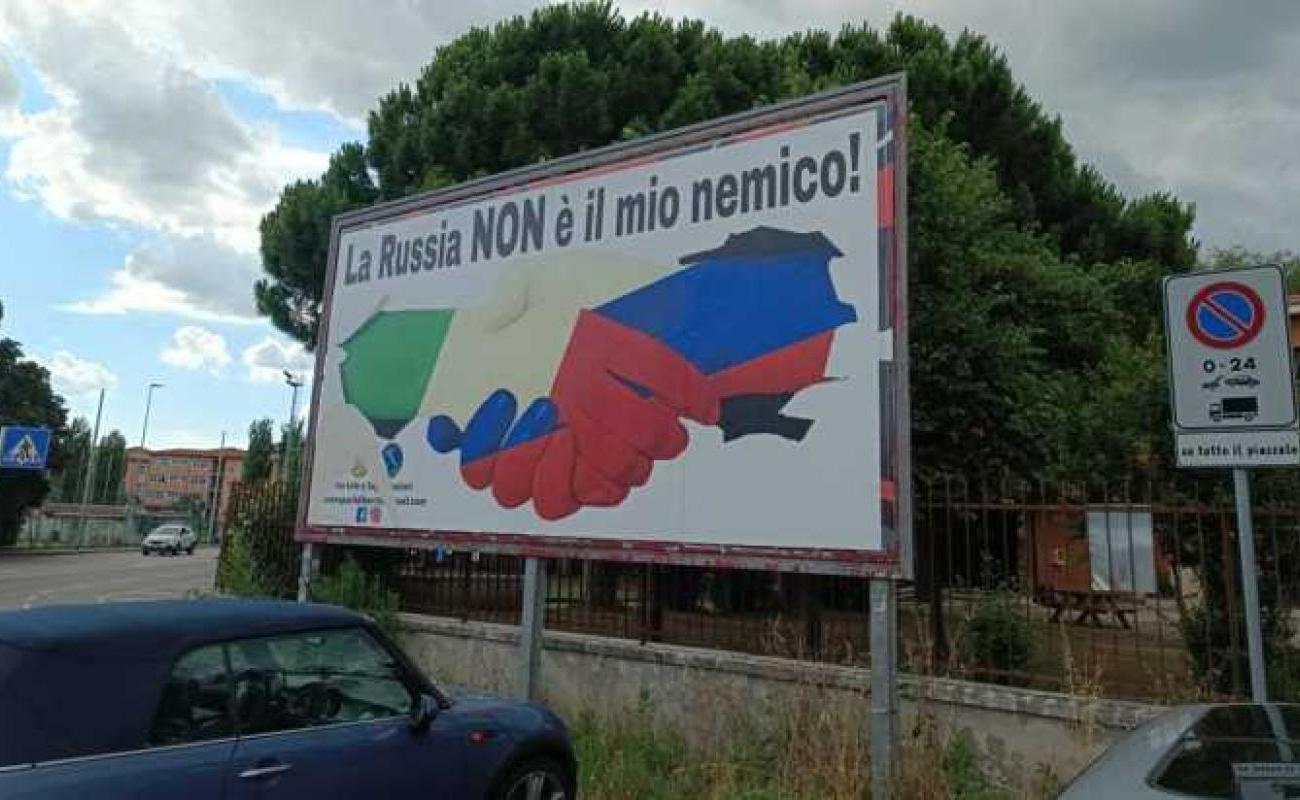Southern Europe: a soft target in Russia’s expanding hybrid war

The Kremlin’s use of hybrid warfare has received growing attention on NATO’s Eastern Flank, where attacks have included arson, sabotage and cyber operations. In contrast, Southern Europe has become a blind spot in Europe’s hybrid threat posture. Here, Russia employs less visible but no less strategic tactics, including disinformation, the manipulation of cultural and religious narratives, and infrastructure disruptions such as blackouts. The goal is not immediate destabilization but the gradual erosion of political cohesion, public trust, and alignment with the EU and NATO.
Unlike in Eastern Europe, where governments have developed hybrid detection and deterrence tools, many states in the South continue to underestimate the threat. This creates fertile ground for the Kremlin’s influence, particularly in shaping public opinion on sanctions, weakening long-term support for Ukraine, and undermining democratic resilience.
A different toolkit: how Russia operates in the South
The Kremlin’s hybrid activities in Southern Europe have been less disruptive on the surface but exceptionally efficient. Russia has employed a combination of hybrid tools to influence political elites, shape public opinion, and disseminate pro-Kremlin narratives through disinformation campaigns and cultural diplomacy. They have focused on undermining public support for continued aid to Ukraine and pushing narratives that frame the war as a proxy conflict driven by the West.
In Italy, the Kremlin has been actively pushing pro-Russian narratives via fringe media actors and populist movements. These narratives have portrayed sanctions as self-destructive and NATO support as needlessly escalatory. Also, the Kremlin’s campaign has explicitly targeted Meloni’s government, which has actively backed Ukraine and prioritized energy security for Italy.
In Greece, the Kremlin has skillfully leveraged Orthodox religious connections to inject identity-based narratives into public discourse, labelling the war in Ukraine as a western attack against common Slavic and Christian values. Moreover, for over a decade, the Kremlin has organized World Public Forum conferences in Greece with Orthodox Church leaders and populist European leaders, such as Austria’s Alfred Gusenbauer and Germany’s Martin Schulz.
In Spain, the Kremlin has successfully spread disinformation questioning the EU’s support for Ukraine, as well as the costs of military aid through channels such as YouTube and Telegram. Moreover, recent blackouts across Portugal and Spain demonstrated the fragility of Southern Europe’s critical infrastructure. In this regard, a pro-Russian hacker group swiftly claimed responsibility, indicating how such incidents can be leveraged as part of the Kremlin’s broader hybrid strategy.
The Southern EU member states are also vulnerable to Russian influence on an economic level, particularly in the energy sector. For instance, Russian natural gas accounted for more than half of Greece’s total imports in 2024 alone. The Turkstream pipeline, which runs from Russia through the Black Sea to Greece’s eastern neighbour, Turkey, allows Moscow to destabilize the Greek energy market. To tackle its dependence on Russian energy, the EU has funded the first phase of a new natural gas project in the far north-eastern Greek city of Alexandroupolis.
It is a similar story on the other side of the Mediterranean. Last year, Spain emerged as the second-largest importer of Russian natural gas behind France. Research by the Institute for Energy Economics and Financial Analysis found that Russian liquefied natural gas (LNG) accounted for 35 per cent of Spain’s total imports. Despite efforts to diversify its energy mix, the EU as a whole still remains highly dependent on Russia for its energy. In 2024, EU member states purchased up to seven billion US dollars worth of Russian LNG.
The gap in countering the Russian hybrid warfare toolkit
Unlike countries in Eastern Europe (e.g., Ukraine, Poland or Lithuania), which have developed communication units and digital response centres to counter Russian propaganda, governments in Southern Europe have demonstrated a lack of action in this domain. They lack coordinated hybrid threat strategies and have failed to integrate existing EU instruments, such as the Rapid Alert System, into their national responses.
At the same time, there is a substantial underfunding of civil actors in countering disinformation emanating from Russia. In particular, watchdog NGOs and fact-checking organizations are severely underfunded and unable to meaningfully counter the Kremlin’s hybrid activities in the region.
A call to action
To reverse these adverse trends, countries in Southern Europe should transition from merely passive monitoring to more active deterrence.
They should establish national hybrid threat centres to coordinate activities among key government bodies and civil society actors in countering Russian propaganda. They could follow the example of Ukraine’s Centre for Strategic Communications, which is tasked with responding to Russian disinformation activities in real time.
Simultaneously, they should invest actively in independent journalism and regional fact-checking organizations. Public civic education campaigns should also be part of a broader set of measures to counter Russian propaganda.
And finally, national education systems should embed media literacy from an early age. Sweden and Finland offer proven models that embed psychological defence and critical thinking in education, turning societal resilience into a long-term asset.
Southern Europe remains an exposed flank in Europe’s hybrid threat posture. As the Kremlin adapts its toolkit to exploit softer vulnerabilities, the lack of institutional preparedness and narrative resilience in the South poses growing risks. Addressing these gaps is essential to reinforcing both national security and EU cohesion in the face of sustained hybrid pressure.
